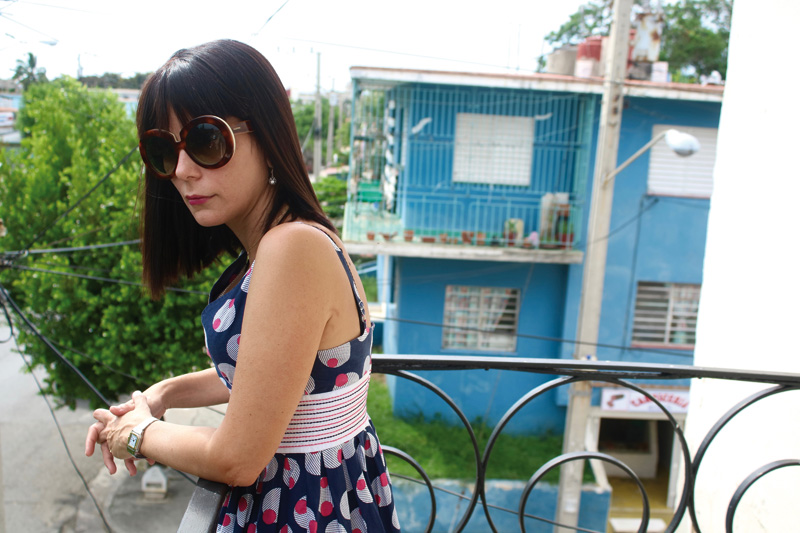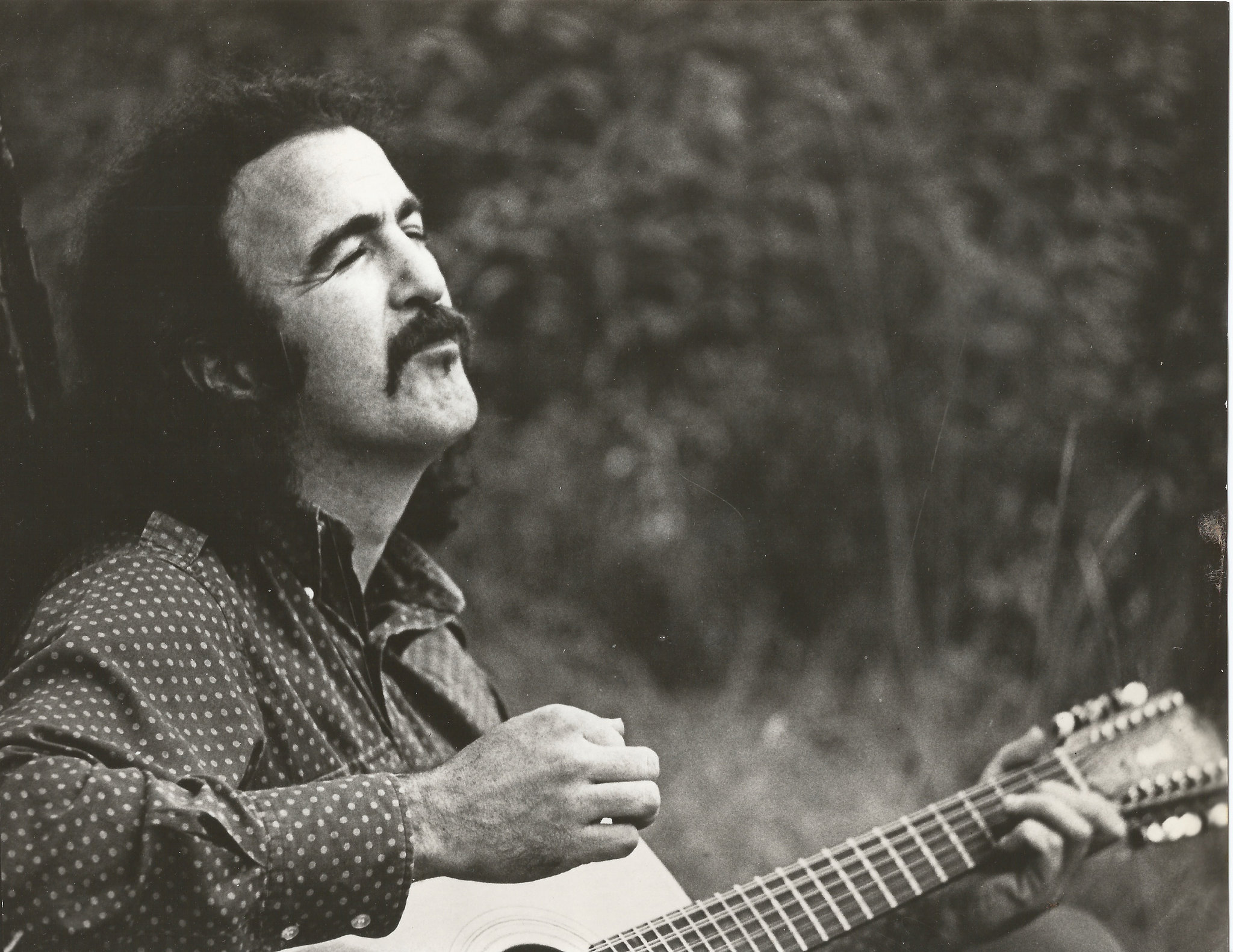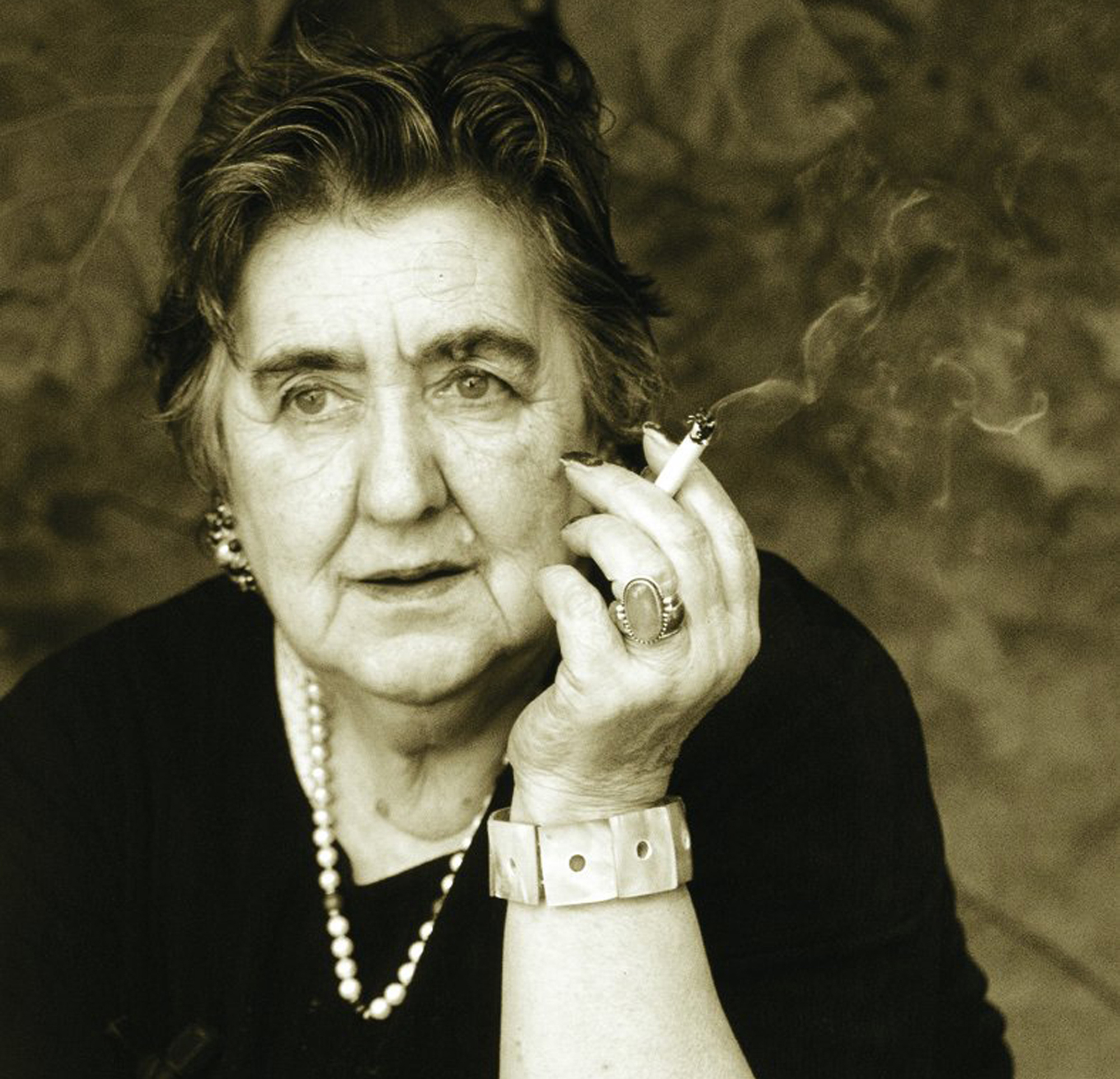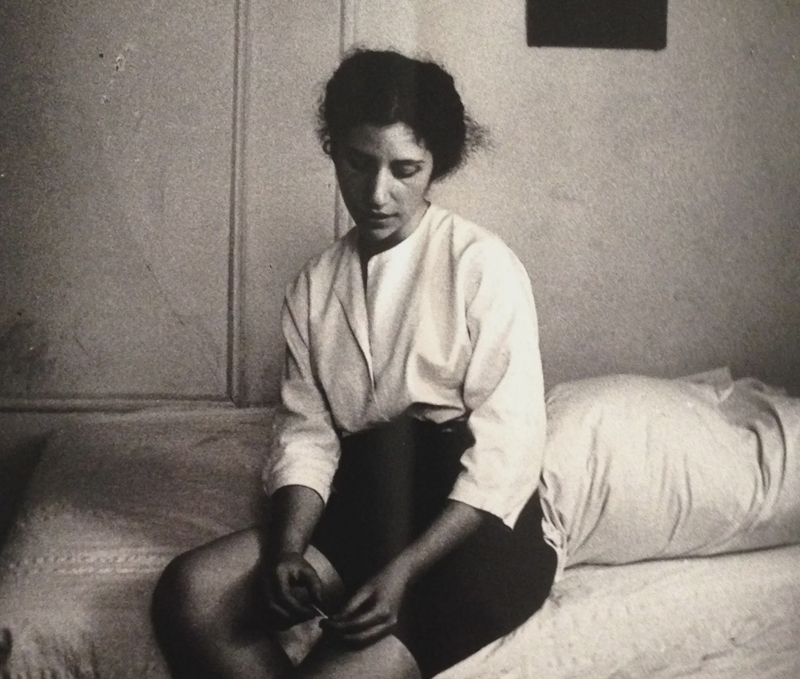"I prefer not to publish a book, to agree with politics"
- Her mother was Cuban writer and poet Wendy Guerra (Havana, 1970), who wrote her first lines in her youth. Only one book has been published in Cuba: Posing naked in Havana (2010, Alfaguara) is difficult to find something written by him on the island. The gap between their foreign fame and their anonymity in their homeland is profound. He talks about the future with as much illusion as skepticism.

We have tried to find your novel in the bookstores of Havana. But we didn't find anything.
I don't know. I have not been able to guess why that is so, it may be that you get it. I don't exist. They've made me invisible. But I find it interesting, it's an exercise of humility. I am retiring spiritually in my own country. I prefer not to publish a book, to have to agree with politics. Neither with Faithful, nor with Raúl, nor with any other government.
What has given him and taken away the revolution?
In a country where there is nothing but a revolution since its birth, it has given you everything and nothing at the same time. That's the answer. All you have or don't have is part of that world. Revolution has been our world.
Singer Silvio Rodríguez accompanies you from the political discrepancy.
People who want to understand each other and agree have interesting and clear discussions. We've all lost friends, unwilling to argue, because we've put ourselves on one side or another. For example, Silvio is a smart man and although we disagree on many ideas, we agree on the fundamental level of humanity and virtue. We understand each other.
It is read in the press that Cuba is changing, but many people there say the opposite.
Things are changing. People are repatriating, coming home. I myself have been able to buy and condition this apartment with the money I have earned in my work. That in the 1970s would have been unthinkable. Things are changing. People can take their children out and travel out. Yes, Cuba is changing.
Many people have gone, but many have chosen to stay in Cuba.
In fact, 11 million people have chosen to stay in Cuba. And of them, several million, even though they were eager to leave, have not been able to escape. There are other people who would like to go back to their parents to eat a mango in their home. People who want to remake their lives inside the island. There's everything, you know? Speaking on behalf of another is complicated.
Do you think dissident?
No, no. Well, since I was a kid, I didn't agree with the teachers, I didn't agree with my family, as I tell you in my novels. But I don't have a political role, because I'm an absolute neophyte in politics. I have been a victim of politics everywhere. And I don't know if when everything changes, if it changes, I will agree with what's coming. I'm a woman who writes, a woman who would have written even if she lived in 1940. I would like to have been born in a village without such little political burden, while in this place where I was born politics can be breathed everywhere.
Revolution Sundays, the latest novel you've published, tells the story of a writer who lives under censorship. Their brute self-fication?
Cleo, the protagonist, looks a lot like me, but also like Luisa María Loinaz or my mother. Cleo has the voice of thousands of women who, isolated and alone, have not been able to be published or published. My book is the perfect corpse of many writers born from the launch of editorial censorship in Cuba.
How much do you owe to your mother?
My mother is inside me. He's a person who lives with me. Those who saw us together know very well what I'm talking about. We were very different from each other. She's a solid woman and I'm a girl who overflows her edges. When he died, I did an apnea exercise, took breath and swam to the bottom of the pool, and then slowly return to the surface. My mother had lost her memory, she didn't remember me, but talked to Faithful. When Fidel went on television, he remembered him. I, on the other hand, no. I don't have my mother's commitment, but my commitment remains until the end of the series.
Was he a supporter of revolution?
Yes! Very favorable! He admired Fidel extraordinarily. Even though she got a scholarship to study in the United States when she was a teenager, she decided to stay here, to continue with utopia, like many of our parents. He finally fell into disagreement, into disagreement, into love. Many artists and intellectuals of their generation were disappointed. Some left and the mother stayed in Cuba. They lost the illusion, dissipated, because they couldn't be either for or against. Because they couldn't protect what they didn't believe, nor could they leave or abandon what they didn't believe.
What does Obama’s visit to Cuba mean?
The Cubans were waiting for an enemy that should never arrive. The arrival in a village in which the family is dissolved, along with their children, their mother-in-law and their wife, has been a demystification of the severe ogre. Imperialism is finally coming! You can't compare it to Jimmy Carter's visit, because it's getting different. It's been up to us to live this time.
Koherentziari errespetua
“Komunista konbentzituak errespetatzen ditut. Badut lagun komunista porrokatu bat, sekulako gosea pasatzen duena, kargu bat baitu eta ezin baitu merkatu beltzean deus erosi. Sakon errespetatzen dut, eta hitz egiten didanean arretaz entzuten diot. Ideiak pasioz eta koherentziaz defendatzen dituztenek errespetua merezi dute”.
Ekain honetan hamar urte bete ditu Pasazaite argitaletxeak. Nazioarteko literatura euskarara ekartzen espezializatu den proiektuak urteurren hori baliatu du ateak itxiko dituela iragartzeko.
Aste honetan aurkeztu da Joseph Brodskyk idatzitako Ur marka. Veneziari buruzko saiakera. Rikardo Arregi Diaz de Herediak itzuli eta Katakrak argitaletxeak publikatu du poeta errusiar atzerriratuari euskarara itzuli zaion lehen liburua.
"There were women, there they were, I met them, but their families locked them in the mental hospital, put them in electroshock. In the 1950s, if you were a man, you could be a rebel, but if you were a woman, your family would lock you in. There were some cases, and I met them... [+]
Gauza garrantzitsua gertatu da astelehen honetan literatura euskaraz irakurtzea atsegin dutenentzat: W. G. Sebalden Austerlitz argitaratu du Igela argitaletxeak. Idoia Santamariak egindako itzulpenari esker, idazle alemaniarraren obrarik ezagunena nobedadeen artean aurkituko du... [+]
Asteazken honetan aurkeztuko dituzte Erein eta Igela argitaletxeek Literatura Unibertsala bildumako hiru lan berriak, tartean Maryse Condéren Bihotza negar eta irri (ene haurtzaroko istorio egiazkoak). Joxe Mari Berasategik euskaratua, idazle guadalupearraren obra... [+]
Wu Ming literatur kolektiboaren Proletkult (2018) “objektu narratibo” berriak sozialismoa eta zientzia fikzioa lotzen ditu, Sobiet Batasuneko zientzia fikzio klasikoaren aitzindari izan zen Izar gorria (1908) nobela eta haren egile Aleksandr Bogdanov boltxebikearen... [+]

























